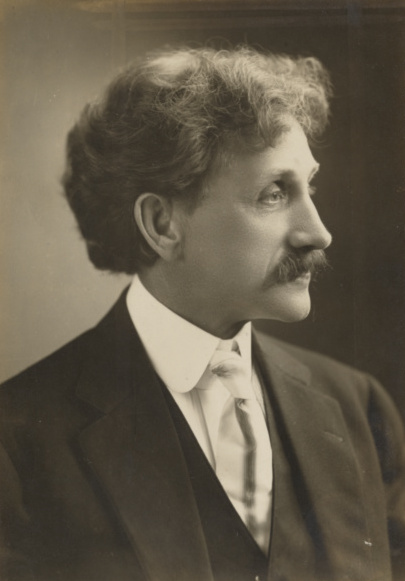Source: Better-World Philosophy: A Sociological Synthesis (1899), The Preponderance of Egoism, p. 137
J. Howard Moore Quotes
Source: Better-World Philosophy: A Sociological Synthesis (1899), The Preponderance of Egoism, p. 133–134
Source: Better-World Philosophy: A Sociological Synthesis (1899), The Preponderance of Egoism, p. 133
Source: Better-World Philosophy: A Sociological Synthesis (1899), The Preponderance of Egoism, pp. 131–132
Source: Better-World Philosophy: A Sociological Synthesis (1899), Egoism and Altruism, p. 119
Source: Better-World Philosophy: A Sociological Synthesis (1899), The Social Ideal, p. 164
Source: Better-World Philosophy: A Sociological Synthesis (1899), Egoism and Altruism, pp. 117
Source: Better-World Philosophy: A Sociological Synthesis (1899), Egoism and Altruism, p. 96
Source: Better-World Philosophy: A Sociological Synthesis (1899), Egoism and Altruism, p. 92
Source: Better-World Philosophy: A Sociological Synthesis (1899), Egoism and Altruism, pp. 117–118
Source: Better-World Philosophy: A Sociological Synthesis (1899), The Social Problem, p. 87
Right and wrong exist as conceptions of mind, because there are portions of the universe capable of happiness and misery. Erase sentiency from the universe and you erase the possibility of ethics. Every conscious portion of the universe, therefore, has ethical relations to every other conscious portion (man, woman, worm, Eskimo, oyster, ox), but not to inanimate portions (clod, cabbage, river, rose), because the ones are sentient and the others are not.
Source: Better-World Philosophy: A Sociological Synthesis (1899), The Social Problem, pp. 81–82
Source: Better-World Philosophy: A Sociological Synthesis (1899), The Social Problem, p. 75
Source: Better-World Philosophy: A Sociological Synthesis (1899), The Social Problem, pp. 74–75
Source: Better-World Philosophy: A Sociological Synthesis (1899), Blunders, p. 72
“Caprice is a hallucination. There is no caprice, only ignorance.”
Source: Better-World Philosophy: A Sociological Synthesis (1899), Blunders, p. 55
Source: Better-World Philosophy: A Sociological Synthesis (1899), The Problem of Industry, pp. 40–41
Source: Better-World Philosophy: A Sociological Synthesis (1899), The Problem of Industry, p. 37
Source: Better-World Philosophy: A Sociological Synthesis (1899), The Problem of Industry, pp. 36–37
Source: Better-World Philosophy: A Sociological Synthesis (1899), The Problem of Industry, pp. 19–20
Source: Better-World Philosophy: A Sociological Synthesis (1899), The Problem of Industry, p. 17
Source: Why I Am a Vegetarian: An Address Delivered before the Chicago Vegetarian Society (1895), pp. 39–40
Source: Why I Am a Vegetarian: An Address Delivered before the Chicago Vegetarian Society (1895), pp. 19–20
Source: Why I Am a Vegetarian: An Address Delivered before the Chicago Vegetarian Society (1895), pp. 11—12
"Preface"
Why I Am a Vegetarian: An Address Delivered before the Chicago Vegetarian Society (1895)
Quoted by Henry S. Salt in Seventy Years Among Savages (1921), p. 244
Suicide note
"The Source of Religion", International Socialist Review, Vol. 16, Iss. 12, Jun. 1916
"The Source of Religion", International Socialist Review, Vol. 16, Iss. 12, Jun. 1916
"The Source of Religion", International Socialist Review, Vol. 16, Iss. 12, Jun. 1916
"A One Time Resident Writes", Atchison County Journal, 23 Mar. 1916
The National Humane Review, Vol. 4–6, American Humane Association, 1916
"Discovering Darwin", Proceedings of the International Anti-Vivisection and Animal Protection congress, held at Washington, D.C. December 8th to 11th, 1913 (1913), p. 158The only consistent attitude, since Darwin established the unity of life (and the attitude we shall assume, if we ever become really civilised), is the attitude of universal gentleness and humanity.
"Discovering Darwin", Proceedings of the International Anti-Vivisection and Animal Protection congress, held at Washington, D.C. December 8th to 11th, 1913 (1913), p. 156
"Discovering Darwin", Proceedings of the International Anti-Vivisection and Animal Protection congress, held at Washington, D.C. December 8th to 11th, 1913 (1913), p. 156
"Discovering Darwin", Proceedings of the International Anti-Vivisection and Animal Protection congress, held at Washington, D.C. December 8th to 11th, 1913 (1913), p. 152
"Human Nature is Defective", speech to the Young People's Socialist League, The Chicago Tribune, 20 Oct. 1910
Source: "Human Nature is Defective", speech to the Young People's Socialist League, The Chicago Tribune, 20 Oct. 1910
"Human Nature is Defective", speech to the Young People's Socialist League, The Chicago Tribune, 20 Oct. 1910
Source: " Humanitarianism in the Schools https://chroniclingamerica.loc.gov/lccn/sn89081128/1909-10-13/ed-1/seq-5/", New Ulm review, 13 Oct. 1909
Debate with Laurence Gronlund, quoted by Karen Iacobbo and Michael Iacobbo in Vegetarian America: A History (2004), p. 121
are questions that assail with relentless emphasis the consciences of a great people.
"America's Apostasy", Chicago Chronicle, 6 Mar. 1899
" The Unconscious Holocaust https://archive.org/details/theunconsciousholocaust-jhowardmoore", Good Health: A Journal of Hygiene, Vol 32, Iss. 2, 1 Feb. 1897, p. 75
"Preface"
Why I Am a Vegetarian: An Address Delivered before the Chicago Vegetarian Society (1895)
“We are striving for the amelioration of this suffering world. Let us be economical.”
Source: Why I Am a Vegetarian: An Address Delivered before the Chicago Vegetarian Society (1895), pp. 43–44
Source: The New Ethics (1907), The Perils of Over-population, pp. 157–158
Source: The New Ethics (1907), The Perils of Over-population, p. 154
Source: The New Ethics (1907), The Perils of Over-population, p. 152
“No being will do his most luminous and exalted thinking with his stomach a morgue.”
Source: The New Ethics (1907), The Food of the Future, p. 137
